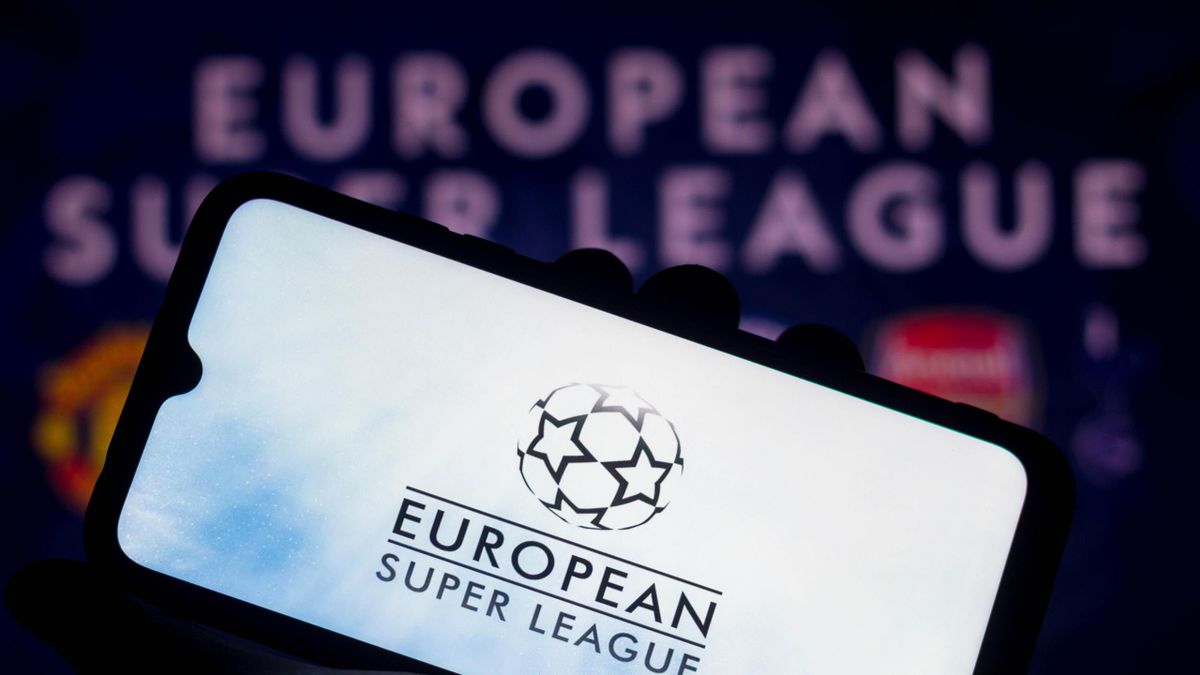The European Union’s Supreme Court has ruled that FIFA and UEFA acted illegally when they banned the European Super League in 2021. The European Court ruled that FIFA and UEFA broke EU competition law by blocking the European Super League.
Along with the six Premier League teams (Arsenal, Chelsea, Liverpool, Manchester City, Manchester United, and Tottenham), Atletico Madrid, Barcelona, and Real Madrid from La Liga, as well as AC Milan, Juventus, and Inter Milan from Serie A, also signed up.
But the ideas were swiftly abandoned after receiving strong criticism.
“The FIFA and UEFA rules on prior approval of interclub football competitions, such as the Super League, are contrary to EU law,” the Court of Justice said in a statement, adding that they breached EU competition law and the freedom to provide services.
“The FIFA and UEFA rules making any new interclub football project subject to their approval, such as the Super League, and prohibiting players from playing in those competitions, are unlawful,” the report read.
The two football organizations were “abusing a dominant position” when they cracked down on the competing league as their rules weren’t “transparent, objective, non-discriminatory, and proportionate,” the court said.
Judges are giving their advice on EU law to a Madrid court, which will rule on the final details of the Super League legal challenge backed by Real Madrid and FC Barcelona.
A dozen of Europe’s leading football clubs set up the Super League in April 2021, but the project collapsed after several clubs pulled out following two days of vociferous opposition from fans, high-profile players and coaches, other clubs, and politicians.
Afterwards, A22, the ESL’s backers, filed a lawsuit against FIFA and UEFA, claiming the organizations had violated competition law by preventing the proposed league.
The court has now delivered its verdict in favor of the claimant and against FIFA and UEFA.
The court has now delivered its verdict in favor of the claimant and against FIFA and UEFA, ruling that they indeed broke competition law to block the prospective
It adds that “where an undertaking in a dominant position has the power to determine the conditions in which potentially competing undertakings may access the market, that power must, given the risk of conflict of interest to which it gives rise, be subject to criteria that are suitable for ensuring that they are transparent, objective, non-discriminatory, and proportionate.
“However, the powers of FIFA and UEFA are not subject to any criteria. FIFA and UEFA are, therefore, abusing a dominant position.
“Moreover, given their arbitrary nature, their rules on approval, control, and sanctions must be held to be unjustified restrictions on the freedom to provide services.
“That does not mean that a competition such as the Super League project must necessarily be approved. The Court does not rule on that specific project in its judgment.”
A22, the backers of the ESL and La Liga, have responded to the ruling. CEO Bernd Reichard said: “We have won the #RightToCompete. The UEFA monopoly is over. Football is FREE.
“Clubs are now free from the threat of sanction and free to determine their own futures.
“For fans: We propose free viewing of all Super League matches.
“For clubs, revenues and solidarity spending will be guaranteed.”
News of the proposed 12-team breakaway league sent shockwaves through the game when it broke in April 2021.
UEFA responds
Today’s decision is in contrast to the one last December, in which the ECJ found that rules allowing UEFA prior approval for new competitions were in accordance with EU competition law.
UEFA will hold a press conference later today and has released a statement on the matter.
“UEFA takes note of the judgment delivered today by the ECJ in the European Super League case,” the court said.
“This ruling does not signify an endorsement or validation of the so-called ‘super league’. It rather underscores a historical shortfall within UEFA’s pre-authorization framework, a technical aspect that has already been acknowledged and addressed in June 2022. UEFA is confident in the robustness of its new rules, specifically that they comply with all relevant European laws and regulations.
“UEFA remains resolute in its commitment to uphold the European football pyramid, ensuring that it continues to serve the broader interests of society. We will continue to shape the European sports model collectively with national associations, leagues, clubs, fans, players, coaches, EU institutions, governments, and partners alike.
“We trust that the solidarity-based European football pyramid that the fans and all stakeholders have declared as their irreplaceable model will be safeguarded against the threat of breakaways by European and national laws.”










